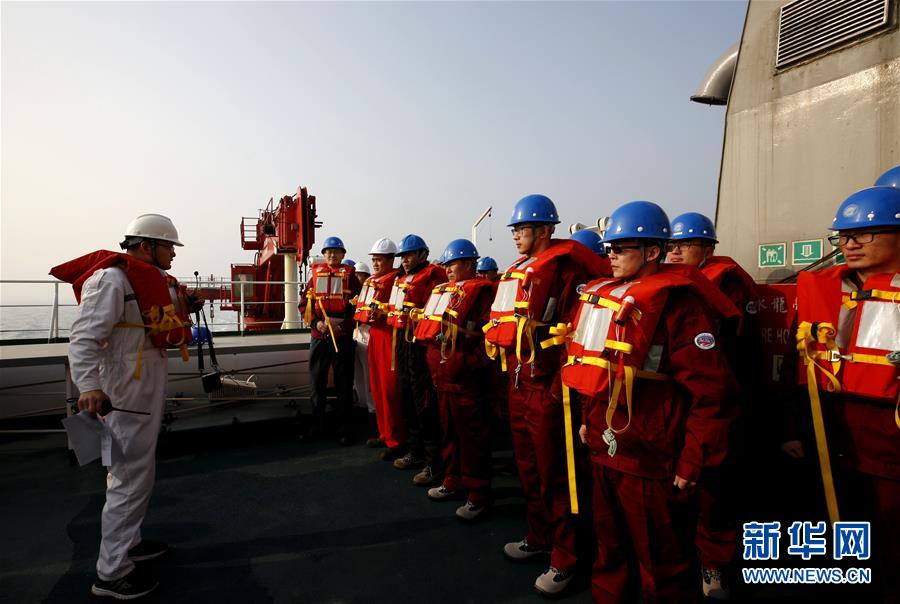
1. System stability refers to 1 System stability refers to a certain stable state shown by system elements under external influence. Its meanings are roughly divided into the following three categories: (1), external temperature, mechanical and other various changes, which do not have a significant impact on the state of the system.
2. The so-called system stability refers to the performance of the system recovering from the initial deviation state to the original equilibrium state after the disturbance disappears. In classical control theory, the sufficient necessary condition for system stability is that when time tends to infinity, the unit pulse of the system is correspondingly equal to zero.
3. It means that when the system is disturbed, it deviates from the original equilibrium state, and when the disturbance disappears, the system can gradually return to the original equilibrium state, which means that the system is stable.
The so-called system stability refers to the performance of the system recovering from the initial deviation state to the original equilibrium state after the disturbance disappears. In classical control theory, the sufficient necessary condition for system stability is that when time tends to infinity, the unit pulse of the system is correspondingly equal to zero.
Then the number of Z of the closed-loop right poles of the system is: Z=N+P. When Z=0, the system is stable; when Z0, the system is unstable.
The stability of a linear system is the main performance indicator of the system. The methods for judging the stability of a linear system include algebraic method, root trajectory method and Nyquist judgment method.
Stable, which shows that this kind of system has good security and will not often crash. It is very mature, but the openness is poor. The most stable system in the world is MSDOS, but its openness is very poor. There are many restrictions. Now it is a personal operation to say that the system is stable.
What does system stability mean? 1 System stability refers to a certain stable state shown by system elements under external influence. Its meanings are roughly divided into the following three categories: external temperature, mechanical and other changes, which do not have a significant impact on the state of the system.

The stability of the system refers to 1 system stability refers to a certain stable state of system elements under the influence of the outside world. Its meanings are roughly divided into the following three categories: (1), external temperature, mechanical and other various changes, which do not have a significant impact on the state of the system.
It means that when the system is disturbed, it deviates from the original equilibrium state, and when the disturbance disappears, the system can gradually return to the original equilibrium state, which means that the system is stable.
The so-called system stability refers to the performance of the system to recover from the initial deviation state to the original equilibrium state after the disturbance disappears. In classical control theory, the sufficient necessary condition for system stability is that when time tends to infinity, the unit pulse of the system is correspondingly equal to zero.
The stability of a linear system is the main performance indicator of the system. The methods for judging the stability of a linear system include algebraic method, root trajectory method and Nyquist judgment method.
System stability refers to the performance of the system that can gradually recover to its original equilibrium after being disturbed by external disturbances. If the system can gradually restore balance through self-regulation after the disturbance disappears, it means that the system is stable.
System stability refers to a certain stable state shown by system elements under external influence. It containsThere are roughly the following three categories: (1), external temperature, mechanical and other changes, which do not have a significant impact on the state of the system.
System stability refers to the performance that the system can gradually recover to its original equilibrium state after being disturbed by external disturbances. If the system can gradually restore balance through self-regulation after the disturbance disappears, it means that the system is stable.
System Stability Definition 1 System stability refers to a certain stable state shown by system elements under external influence. Its meanings are roughly divided into the following three categories: (1) External temperature, mechanical and other changes do not have a significant impact on the state of the system.
The so-called system stability refers to the performance of the system to recover from the initial deviation state to the original equilibrium state after the disturbance disappears. In classical control theory, the sufficient necessary condition for system stability is that when time tends to infinity, the unit pulse of the system is correspondingly equal to zero.
UEFA TV-APP, download it now, new users will receive a novice gift pack.
1. System stability refers to 1 System stability refers to a certain stable state shown by system elements under external influence. Its meanings are roughly divided into the following three categories: (1), external temperature, mechanical and other various changes, which do not have a significant impact on the state of the system.
2. The so-called system stability refers to the performance of the system recovering from the initial deviation state to the original equilibrium state after the disturbance disappears. In classical control theory, the sufficient necessary condition for system stability is that when time tends to infinity, the unit pulse of the system is correspondingly equal to zero.
3. It means that when the system is disturbed, it deviates from the original equilibrium state, and when the disturbance disappears, the system can gradually return to the original equilibrium state, which means that the system is stable.
The so-called system stability refers to the performance of the system recovering from the initial deviation state to the original equilibrium state after the disturbance disappears. In classical control theory, the sufficient necessary condition for system stability is that when time tends to infinity, the unit pulse of the system is correspondingly equal to zero.
Then the number of Z of the closed-loop right poles of the system is: Z=N+P. When Z=0, the system is stable; when Z0, the system is unstable.
The stability of a linear system is the main performance indicator of the system. The methods for judging the stability of a linear system include algebraic method, root trajectory method and Nyquist judgment method.
Stable, which shows that this kind of system has good security and will not often crash. It is very mature, but the openness is poor. The most stable system in the world is MSDOS, but its openness is very poor. There are many restrictions. Now it is a personal operation to say that the system is stable.
What does system stability mean? 1 System stability refers to a certain stable state shown by system elements under external influence. Its meanings are roughly divided into the following three categories: external temperature, mechanical and other changes, which do not have a significant impact on the state of the system.

The stability of the system refers to 1 system stability refers to a certain stable state of system elements under the influence of the outside world. Its meanings are roughly divided into the following three categories: (1), external temperature, mechanical and other various changes, which do not have a significant impact on the state of the system.
It means that when the system is disturbed, it deviates from the original equilibrium state, and when the disturbance disappears, the system can gradually return to the original equilibrium state, which means that the system is stable.
The so-called system stability refers to the performance of the system to recover from the initial deviation state to the original equilibrium state after the disturbance disappears. In classical control theory, the sufficient necessary condition for system stability is that when time tends to infinity, the unit pulse of the system is correspondingly equal to zero.
The stability of a linear system is the main performance indicator of the system. The methods for judging the stability of a linear system include algebraic method, root trajectory method and Nyquist judgment method.
System stability refers to the performance of the system that can gradually recover to its original equilibrium after being disturbed by external disturbances. If the system can gradually restore balance through self-regulation after the disturbance disappears, it means that the system is stable.
System stability refers to a certain stable state shown by system elements under external influence. It containsThere are roughly the following three categories: (1), external temperature, mechanical and other changes, which do not have a significant impact on the state of the system.
System stability refers to the performance that the system can gradually recover to its original equilibrium state after being disturbed by external disturbances. If the system can gradually restore balance through self-regulation after the disturbance disappears, it means that the system is stable.
System Stability Definition 1 System stability refers to a certain stable state shown by system elements under external influence. Its meanings are roughly divided into the following three categories: (1) External temperature, mechanical and other changes do not have a significant impact on the state of the system.
The so-called system stability refers to the performance of the system to recover from the initial deviation state to the original equilibrium state after the disturbance disappears. In classical control theory, the sufficient necessary condition for system stability is that when time tends to infinity, the unit pulse of the system is correspondingly equal to zero.
100 free bonus casino no deposit GCash
author: 2025-02-05 21:22Hearthstone Arena class tier list 2024
author: 2025-02-05 20:27 European Cup live
European Cup live
678.83MB
Check TNT Sports
TNT Sports
498.59MB
Check UEFA live free
UEFA live free
871.13MB
Check bingo plus update today Philippines
bingo plus update today Philippines
289.98MB
Check Hearthstone Arena win rate
Hearthstone Arena win rate
792.39MB
Check PAGCOR online casino free 100
PAGCOR online casino free 100
828.42MB
Check Hearthstone Wild Decks
Hearthstone Wild Decks
176.34MB
Check DigiPlus fair value
DigiPlus fair value
245.42MB
Check bingo plus update today
bingo plus update today
596.97MB
Check European Cup live
European Cup live
829.73MB
Check bingo plus update today
bingo plus update today
189.96MB
Check bingo plus update today Philippines
bingo plus update today Philippines
426.52MB
Check Free sports events uefa champions league app android
Free sports events uefa champions league app android
122.94MB
Check Hearthstone Wild Decks
Hearthstone Wild Decks
985.15MB
Check Hearthstone arena class win rates reddit
Hearthstone arena class win rates reddit
942.49MB
Check DigiPlus
DigiPlus
888.55MB
Check Bingo Plus stock
Bingo Plus stock
357.56MB
Check European Cup live
European Cup live
914.38MB
Check Bingo Plus
Bingo Plus
911.25MB
Check Casino Plus app
Casino Plus app
677.18MB
Check PAGCOR online casino free 100
PAGCOR online casino free 100
222.64MB
Check Casino redeem
Casino redeem
817.97MB
Check LR stock price Philippines
LR stock price Philippines
415.85MB
Check UEFA Champions League live streaming app
UEFA Champions League live streaming app
289.73MB
Check casino plus free 100
casino plus free 100
787.71MB
Check Casino free 100 no deposit
Casino free 100 no deposit
123.41MB
Check Hearthstone Arena class tier list 2024
Hearthstone Arena class tier list 2024
227.53MB
Check DigiPlus Philippine
DigiPlus Philippine
688.98MB
Check UEFA live free
UEFA live free
716.88MB
Check LR stock price Philippines
LR stock price Philippines
571.45MB
Check UEFA EURO
UEFA EURO
531.53MB
Check Hearthstone arena class win rates reddit
Hearthstone arena class win rates reddit
719.44MB
Check UEFA live free
UEFA live free
846.64MB
Check Walletinvestor digi plus
Walletinvestor digi plus
766.72MB
Check PAGCOR online casino free 100
PAGCOR online casino free 100
293.67MB
Check Bingo Plus
Bingo Plus
546.54MB
Check
Scan to install
UEFA TV to discover more
Netizen comments More
430 European Cup live
2025-02-05 21:59 recommend
1508 UEFA Champions League
2025-02-05 21:59 recommend
401 UEFA live free
2025-02-05 21:51 recommend
159 UEFA Champions League standings
2025-02-05 20:47 recommend
2012 Casino free 100 no deposit
2025-02-05 20:31 recommend